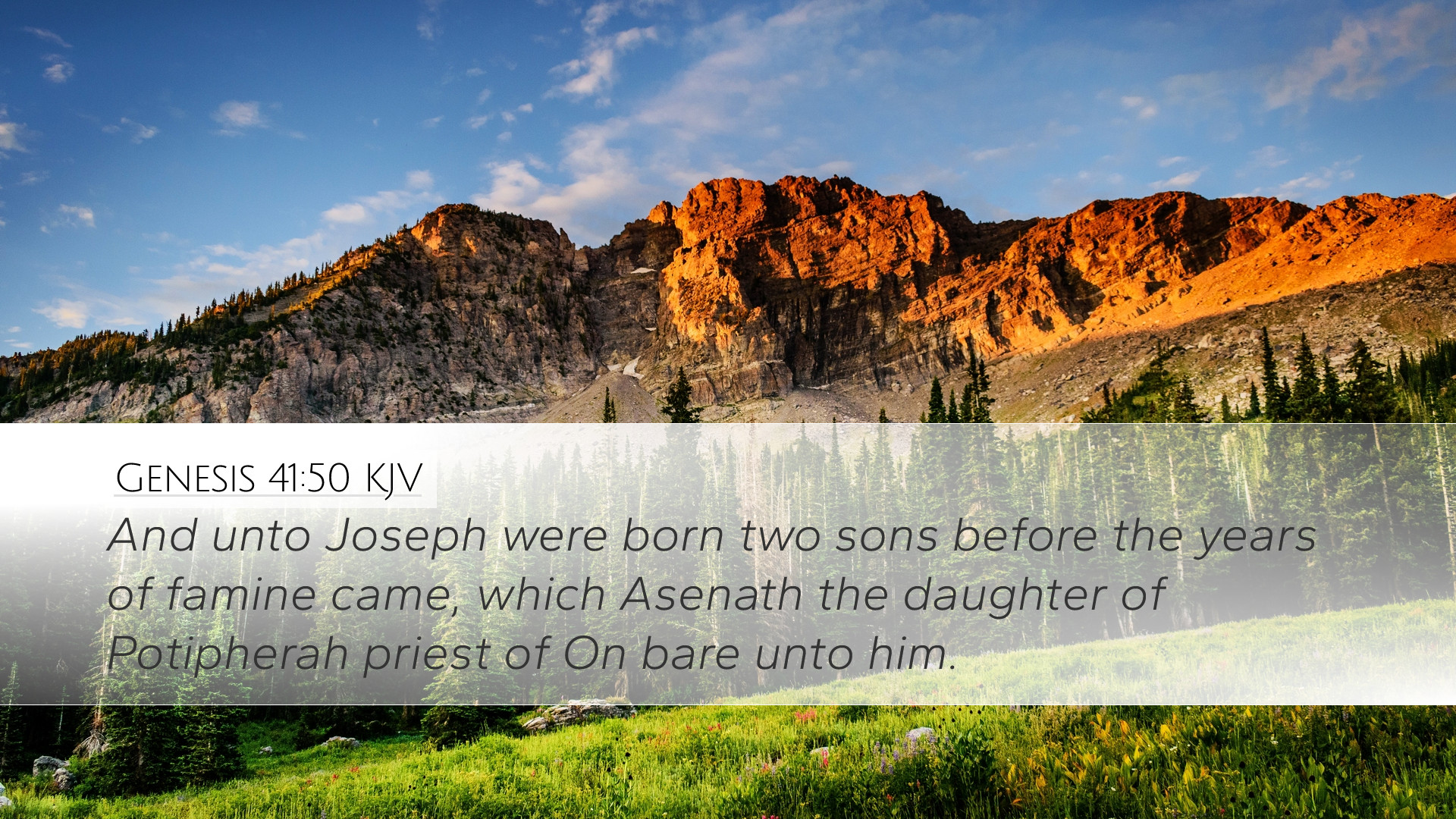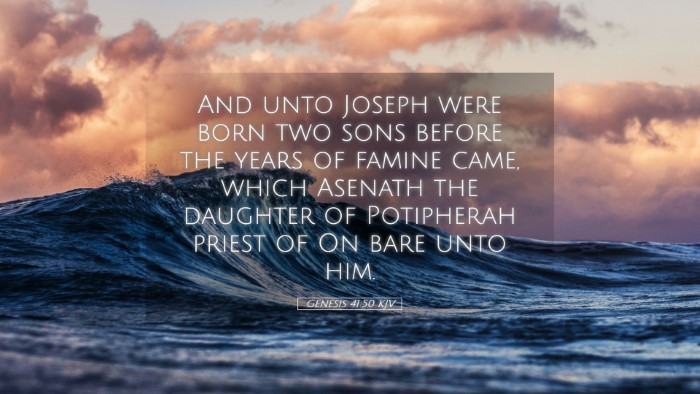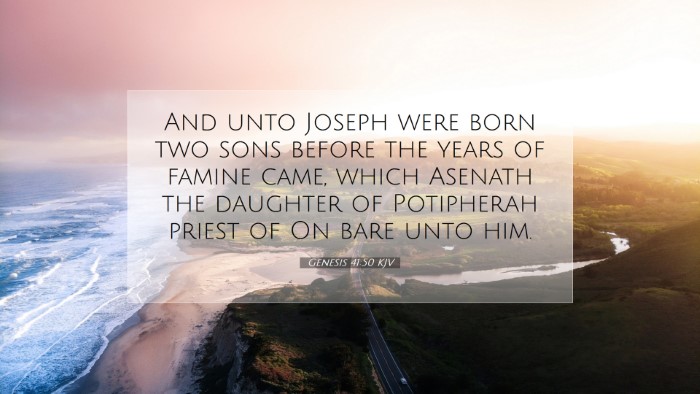Commentary on Genesis 41:50
Genesis 41:50 states: "And unto Joseph were born two sons before the years of famine came, which Asenath the daughter of Potipherah priest of On bare unto him." This verse encapsulates a significant turn in Joseph’s life, providing a bridge between his trials and the forthcoming prosperity that follows God's appointed time.
Contextual Background
To understand this verse comprehensively, one must consider the preceding events in Joseph's life. After enduring hardships, including being sold into slavery, falsely accused, and imprisoned, Joseph's rise to power in Egypt is remarkable. He interprets Pharaoh's dreams, revealing the impending years of abundance and famine, which ultimately leads to his appointment as second-in-command in Egypt.
Joseph's Sons: A Symbol of Blessing
The birth of Joseph's two sons, Manasseh and Ephraim, signifies more than familial growth; they are emblematic of God's faithfulness and providence. Matthew Henry notes that the very names of the children carry meaning relevant to Joseph's life experiences:
- Manasseh: His name means "For God hath made me forget all my toil." This symbolizes Joseph's healing from past traumas.
- Ephraim: Meaning "For God hath caused me to be fruitful in the land of my affliction," it addresses both his prosperity and divine favor despite his trials.
The Role of Asenath
Asenath, the daughter of Potipherah, plays a crucial role in the narrative. As Adam Clarke elucidates, her being a priest's daughter suggests that Joseph's marriage is not only a personal union but also a political and social alliance, enhancing Joseph's position in Egypt. This union further signifies God's orchestration in his life, as it aligns with the cultural context of Joseph's time.
The Significance of Location: On
The city of On, known for its worship of the sun and as a center for idol worship, illustrates the complexities of Joseph's environment. Albert Barnes notes that Joseph, coming from a background of covenant faith, is now intermingling with a culture steeped in idolatry. Yet, this bleeds into an opportunity for a pivotal witness, as God uses Joseph's circumstance to display His sovereignty.
Theological Reflections
This passage invites theological reflection on God's providential care and the unfolding plan for His people. Joseph's experiences echo the theme of redemption and the enchanting narrative of suffering leading to glory, which resonates throughout Scripture. It serves as a foretaste of the larger redemptive act found in Christ.
Implications for Pastoral Ministry
For pastors and ministry leaders, Joseph's story offers a powerful narrative about the importance of faithfulness amidst trials:
- Hope in Adversity: Joseph maintained faith in God through his difficulties, a lesson for congregations facing their own challenges.
- God’s Timing: The timing of the births of Joseph's sons teaches about patience and the unfolding of God's plan in our lives.
- Fruitfulness in Trials: The notion that God can bring about spiritual fruitfulness even in the midst of life’s afflictions is both comforting and empowering.
Conclusion
In conclusion, Genesis 41:50 presents rich theological implications rooted in historical context and personal narrative. By exploring the depths of Joseph’s experiences and the names of his sons, scholars and ministers alike can glean insights into divine providence, the role of faith, and the importance of identity in Christ amidst a challenging world. Such understanding not only enriches the personal walk of faith but also informs the broader pastoral and theological discourse.


